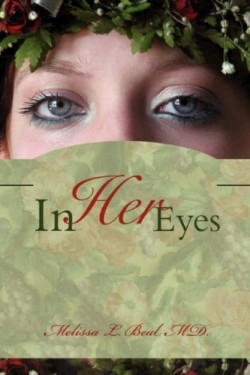In Her Eyes
Poet Melissa L. Beal a pathologist by profession writes with the hand and heart of a survivor: childhood experiences of sexual abuse a narrow escape from death at the age of nineteen surviving ovarian cancer and recovering from addiction have marked her as a wounded warrior—no one leaves such battles unscathed. But remaining open to beauty and love in spite of such suffering is a choice one makes and Beal has chosen openness and self-expression rather than bitterness. In doing so she has claimed life’s gift to the poet an awakened sensitivity to the human condition and to life’s cycles of birth and death. Poems like “The Wave” in which the strength of the heart triumphs over a wave’s pull toward death and “Warrior” which speaks of love’s ability to give life a new beginning free of the burdens of the past highlight a survivor’s strength in this volume of collected poetry; other poems reflect on the beauty and power of nature or express grief pain and despair over loss illness and abuse.
Beal admits that she would be lost without poetry and its ability to touch and heal the soul (“Lost Without Poetry”); poetry when shared can also move beyond personal healing to touch others who have suffered. In “Ferruginous Blood” the reader inhabits the body of a child subject to sexual abuse by a grandfather and the child’s feeling of “Life ripped open / and from me. / Gutted like a rainbow trout / caught frigid from the / water of the river.”
The choice to work in rhyme forces a poet to deal with the difficult task of avoiding “expected” words and greeting-card clichés; Beal in her rhyming poems has confronted the task with a degree of success often avoiding the most obvious words to reach farther into the language for a more creative choice. Even so there are times when the rhyming feels forced and the use of other techniques or forms might allow for enhanced rhythmic flow without the need to revert to archaic styles of speech for the sake of rhyme.
Submitting work to the practiced eye of a teacher or mentor would help Beal already a sensitive and dedicated poet to even out the quality of her poems and perhaps avoid such problems as those that occur in “Winter Lights” which establishes both rhyme and rhythm early on but disturbs visually by the line arrangement of the second stanza and rhythmically by the addition of extra non-stressed syllables that create the feeling that the reader must skip and hop to catch up. Rhythm in poetry creates an effect not unlike the beat in a musical composition and like rhyme activates a sense of expectation in the listener; reading aloud to those qualified to offer educated response would make any lapses obvious.
Finally better quality reproduction would enhance the reader’s appreciation of Cindy Alexander’s lovely nature photographs; they are grainy and spotted and one can only imagine the effect they might produce had they received the attention they merit.
Disclosure: This article is not an endorsement, but a review. The publisher of this book provided free copies of the book and paid a small fee to have their book reviewed by a professional reviewer. Foreword Reviews and Clarion Reviews make no guarantee that the publisher will receive a positive review. Foreword Magazine, Inc. is disclosing this in accordance with the Federal Trade Commission’s 16 CFR, Part 255.

